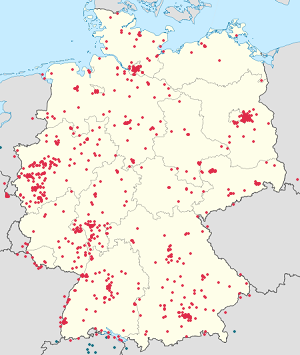La petizione è indirizzata a:
Hochschulrektorenkonferenz
We call on universities and other higher education institutions in Germany to shut down their accounts on X (formerly Twitter) as soon as possible. Their presence on X/Twitter is incompatible with the universities' remit to provide information because disinformation and political smear campaigns are condoned there. At the same time, a presence should be established on Mastodon and other Fediverse servers, whose decentralised and moderated design is much more compatible with the rules of democratic and sustainable cooperation.
The importance of social media for scientific communication has grown in recent years. However, the negative side effects of the major platforms no longer seem negligible. The developments at X/Twitter in particular have prompted many users to turn to open services such as Mastodon.
The current situation offers a good opportunity to pause and ask ourselves what direction university communication has taken without questioning the cultural change of recent years. We would like to initiate this process of reflection.
This has to change
We therefore expect universities in Germany to offer an alternative to all those who do not wish to use the undemocratic, unfair and unsustainable platforms. A Fediverse service such as Mastodon should immediately be used to disseminate the same information as on the other platforms. Fediverse services offer far more than just an advertising channel: interactive spaces are created via dedicated instances in which science is not only reported, but also discussed and further developed.
Universities should therefore also support the development of the Fediverse and set up their own servers/instances, as is already happening elsewhere. Mastodon and the Fediverse are currently being recognised as an alternative by many groups and institutions, so that an expansion of capacities is required. Universities, with their information science departments and their commitment to sustainable research and teaching, are better placed than any other institution to do this.
The signatories of this letter are convinced that the way in which the major social media platforms are operated poses a serious threat to our democratic community. The increasing use of so-called AI methods exposes users to ever more subtle manipulation, for which the excessive collection of personal data has created the conditions. By supporting the expansion of Fediverse services such as Mastodon, universities can make an important contribution to strengthening our democracy and to the sustainable development of science and society.
Motivazioni:
The problem
Universities have long been places of critical thinking in Germany and beyond, and it is astonishing how uncritically so-called social media are used. There are good reasons to take a critical view of the use of X/Twitter, Instagram, YouTube, TikTok, etc:
1. Psychological impairments such as depression and internet addiction have been widely reported. Former Facebook employee Frances Haugen revealed the methods of manipulation and pointed out that the major platforms use psychological teams and methods to keep users hooked for as long as possible and maximise advertising. The presence of universities on the platforms encourages their use and reinforces dependencies.
2. Personally identifiable information is collected from users on a large scale in order to create personality profiles for targeted advertising. In July 2020, the European Court of Justice ruled that much of this data collection is illegal and incompatible with the European General Data Protection Regulation (GDPR).
3. The personality data obtained in this way is used to incentivise unsustainable consumption. Videos labelled with the hashtag #tiktokmademebuyit have been viewed more than 40 billion times by consumers, a large proportion of whom were enticed to buy by using the platform.
4. Disinformation and hate speech, cyberbullying and discrimination are still dominant elements on the media that describe themselves as social. Even legal regulations have not been able to change this. Our elected politicians and other public figures continue to be intimidated and threatened on these platforms, persecution of women is instigated, elections are manipulated and democratic institutions are attacked.
5. Since all users prefer to use platforms like others, the operators have become global monopolies. This form of business contradicts the model of a social market economy, which favours diversity over monopolies. The decentralised structure of services such as Mastodon, Friendica, PeerTube, etc., which have come together in the so-called Fediverse, is much more in line with a social and economic order based on solidarity and justice.
6. The combined profits of Facebook/Meta, Alphabet/Google, TikTok etc. have grown to the order of 100 billion euros in recent years, which is comparable to the national budgets of medium-sized countries. Instead of being held in private hands, the money is much more urgently needed to solve social problems in the countries where it is generated. Corporations contribute to the division of societies into rich and poor and counteract the UN Sustainable Development Goals, which call for the reduction of income inequality.
Universities cannot seriously want to promote these socially damaging developments. Historically, they have emerged as places of enlightenment, knowledge and democratisation of knowledge and many university members still see them in this role today.
However, a rough estimate shows that in order to be present on the commercial platforms, a three-digit number of staff positions are financed at the almost 300 German universities organised in the HRK. This means that several million euros are spent every year to finance unsustainable companies from taxpayers' money. In fact, these funds are urgently needed for the digitalisation of universities: to purchase modern hardware and software, to implement open science models, to protect IT from hacker attacks, etc.





